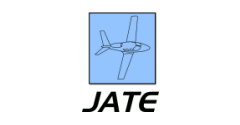Abstract
Safety is critical to the success of the aviation industry, and as it continues to develop worldwide and link more people and places, how aviation safety is standardized has been and will continue to be a global concern. The International Civil Aviation Organization (ICAO) has developed a comprehensive framework for safety management at airlines and airports, known as Doc. 9859 Safety Management Manual (SMM). Safety Management Systems (SMS) have since been required to be implemented by all ICAO member states beginning January 2010. Taiwan, administered by the Republic of China (ROC), is in a unique position as a non-member state of ICAO that is strongly connected to the world’s aviation system. Using the Delphi Technique and convenient sampling, this research is a case study of how aviation safety is managed at a major international airport in Taiwan with respect to ICAO’s SMS standards. Interviews and focus groups were conducted with participants from three major organizations operating at the surveyed airport: air traffic controllers, the airport management company, and a ground services provider. Results found that despite Taiwan’s non-member status with ICAO, safety management was very consistent with ICAO SMS standards, especially in the areas this study focused on: safety policy and objectives, safety risk management, safety assurance, and safety promotion.
Recommended Citation
Leib, Steven and Lu, Chien-tsung
(2013)
"A Gap Analysis of Airport Safety Using ICAO SMS Perspectives: A Field Study of Taiwan,"
Journal of Aviation Technology and Engineering:
Vol. 2:
Iss.
2, Article 7.
Available at: https://doi.org/10.7771/2159-6670.1078



